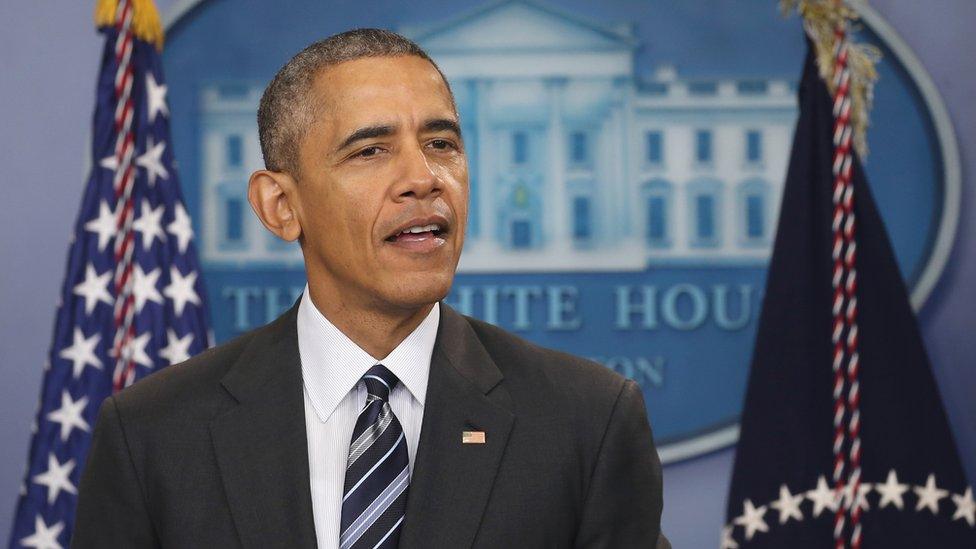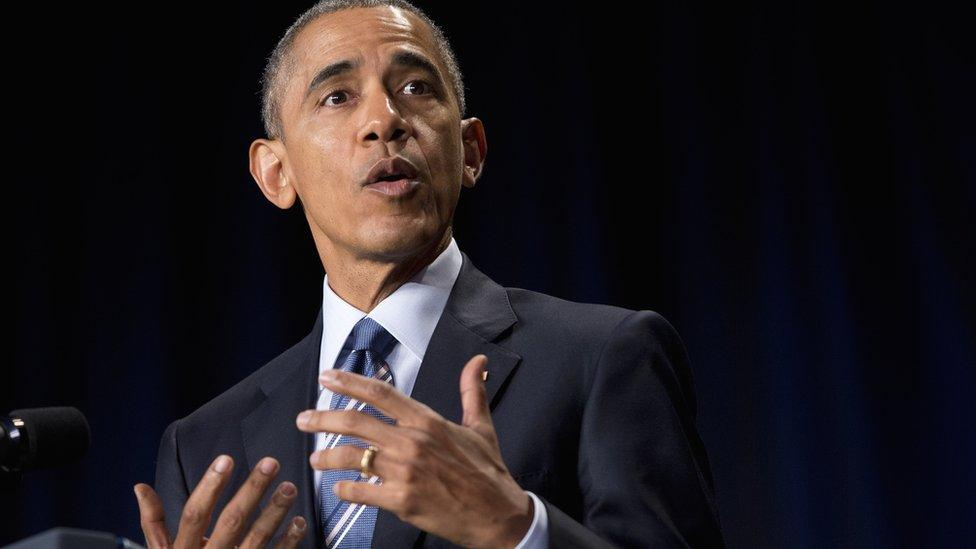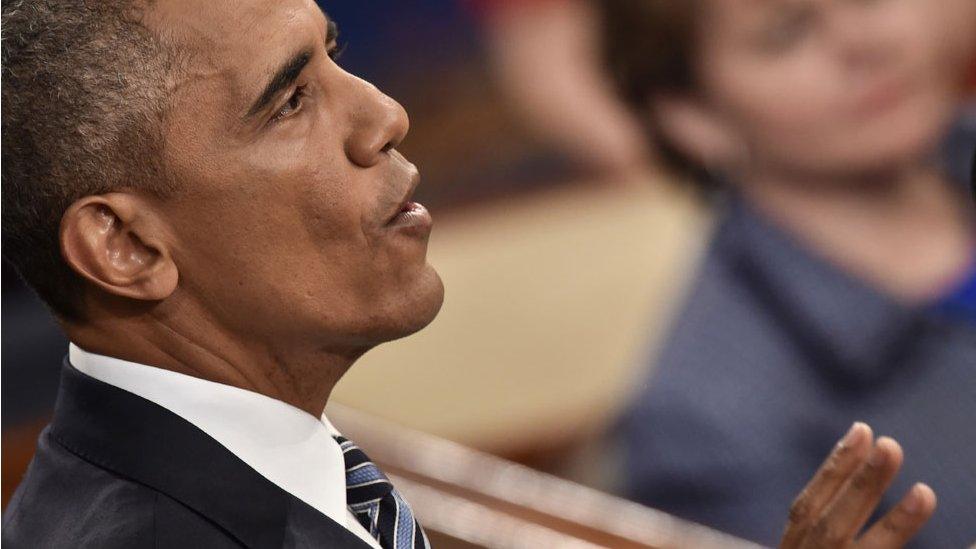Obama proposes $10 a barrel oil tax
- Published

President Obama has released the final budget proposal of his presidency, a $4.1tn (£2.8tn) programme that includes a $10.25 per barrel tax on oil.
The Republican-controlled Congress is expected to reject it.
The leaders of the House and Senate budget committees jointly announced they would not invite Mr Obama's budget director to testify before them.
Despite the setbacks, the White House has said the budget, external sticks to a bipartisan agenda reached last autumn.
The budget is for the 2017 fiscal year and would not take effect until 1 October 2016.
The tax on oil would raise $319bn over 10 years. The US Treasury said that the tax would apply to both imported and domestically-produced oil, but would not be collected on US oil shipped overseas.
The plan would also temporarily exempt home-heating oil from the tax.
The White House said the tax "creates a clear incentive for private-sector innovation to reduce America's reliance on oil and invest in clean energy technologies that will power our future".
The tax would be paid by oil companies in order to boost spending on transportation infrastructure, including mass transit and high-speed rail, and autonomous vehicles.
President Obama's budget includes $11bn to fight so-called Islamic State, plus money for early childhood education, and research and development.
It includes $19bn in spending on cyber security that would allow for a overhaul of the federal government's internal computing systems.
Last year, systems at the Office of Personnel Management were hacked, exposing the personal information of government employees and job applicants.
Deficit reduction
The proposed budget envisions a deficit of $503bn in the 2017 fiscal year after a $616bn budget gap in the current fiscal year, which ends on 30 September.
It seeks to cut deficits by $2.9tn over 10 years, largely through smaller tax breaks for wealthy earners, new savings in Medicare healthcare, and assumptions that adoption of its policies would boost economic growth.
Over 10 years, deficits would average 2.5% of US economic output, compared with about 4% in the Congressional Budget Office's estimate, which is based on current laws.
"That [budget] document... will be President Obama's final vision of how he lays out the fiscal future for the country," said Joel Friedman, vice president for federal fiscal policy at the Center on Budget and Policy Priorities.
"I don't think anyone expects it to be enacted this year. Republicans aren't going to embrace it, but that doesn't mean it's not going to be a useful document."
Congress can advance elements of the budget without endorsing the entire proposal.
- Published4 February 2016

- Published13 January 2016
